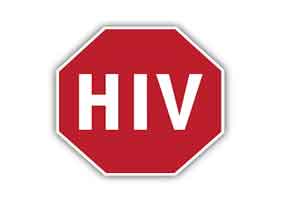- Home
- Editorial
- News
- Practice Guidelines
- Anesthesiology Guidelines
- Cancer Guidelines
- Cardiac Sciences Guidelines
- Critical Care Guidelines
- Dentistry Guidelines
- Dermatology Guidelines
- Diabetes and Endo Guidelines
- Diagnostics Guidelines
- ENT Guidelines
- Featured Practice Guidelines
- Gastroenterology Guidelines
- Geriatrics Guidelines
- Medicine Guidelines
- Nephrology Guidelines
- Neurosciences Guidelines
- Obs and Gynae Guidelines
- Ophthalmology Guidelines
- Orthopaedics Guidelines
- Paediatrics Guidelines
- Psychiatry Guidelines
- Pulmonology Guidelines
- Radiology Guidelines
- Surgery Guidelines
- Urology Guidelines
HIV infection in Girl under control without AIDS drugs

France: A South African girl born with the AIDS virus has kept her infection suppressed for more than eight years after stopping anti-HIV medicines more evidence that early treatment can occasionally cause a long remission that, if it lasts, would be a form of cure.
Her case was revealed on Monday at an AIDS conference in Paris, where researchers also gave encouraging results from tests of shots every month or two instead of daily pills to treat HIV.
"That's very promising" to help people stay on treatment, the US's top AIDS scientist, Dr Anthony Fauci, said of the prospects for long-acting drugs.
Current treatments keep HIV under control but must be taken lifelong. Only one person is thought to be cured the so-called Berlin patient, a man who had a bone marrow transplant in 2007 from a donor with natural resistance to HIV.
But transplants are risky and impractical to try to cure the millions already infected. So some researchers have been aiming for the next best thing long-term remission, when the immune system can control HIV without drugs even if signs of the virus remain.
Aggressive treatment soon after infection might enable that in some cases, and the South African girl is the third child who achieved a long remission after that approach.
She was in a study sponsored by the agency Fauci heads, the National Institute of Allergy and Infectious Diseases, that previously found that early versus delayed treatment helped babies survive.
The girl, who researchers did not identify, started on HIV drugs when she was 2 months old and stopped 40 weeks later. Tests when she was 9 1/2 years old found signs of virus in a small number of immune system cells, but none capable of reproducing.
The girl does not have a gene mutation that gives natural resistance to HIV infection, Fauci said, so her remission seems likely due to the early treatment.

Disclaimer: This site is primarily intended for healthcare professionals. Any content/information on this website does not replace the advice of medical and/or health professionals and should not be construed as medical/diagnostic advice/endorsement or prescription. Use of this site is subject to our terms of use, privacy policy, advertisement policy. © 2020 Minerva Medical Treatment Pvt Ltd